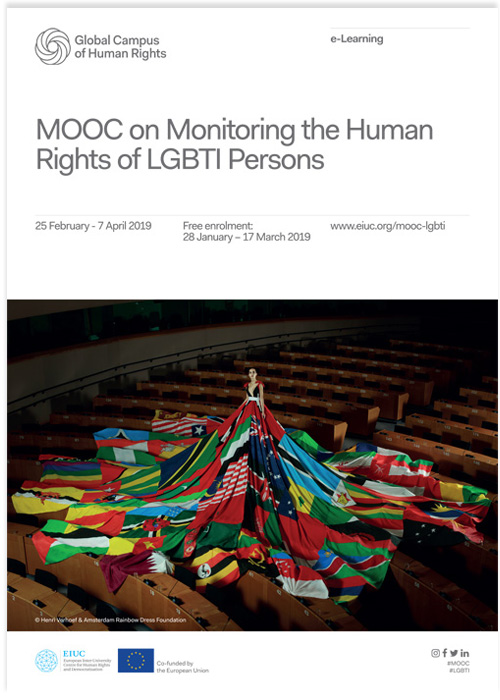Patterns of systematic violence and discrimination directed at Lesbian, Gay, Bisexual, Transgender and Intersex (LGBTI) persons because of their real or perceived sexual orientation, gender identity or sex characteristics (SOGIESC) are widely documented. These abuses include killings, physical attacks, torture, sexual assault, arbitrary detention and imprisonment, and discrimination in a variety of fields, including on the labour market and in health care services.
Collecting information and documenting evidence of human rights violations against LGBTI persons is important to give credibility to advocacy and policy-oriented work. However, it is neither sufficient nor easy. Firstly, data collection and reporting – if and when possible – must be translated into action for change at a number of levels (national, regional, international) and in a number of areas (legislation, policies, societal attitudes and behaviours) where multiple challenges still exist. Secondly, analysis and possible solutions are not simple or mono-dimensional. Indeed, human rights violations based on real or perceived SOGIESC features are often compounded by discrimination on other grounds such as sex, gender, nationality, race, ethnicity, indigeneity, language, age, religion, belief, political or other opinion, disability, health (including HIV status), economic or social status, migration status, family status, or being a human rights defender. Therefore, it is often crucial to take an intersectional approach to SOGIESC advocacy, taking into consideration and addressing that discrimination often occurs due to the combination of multiple grounds of identity.


